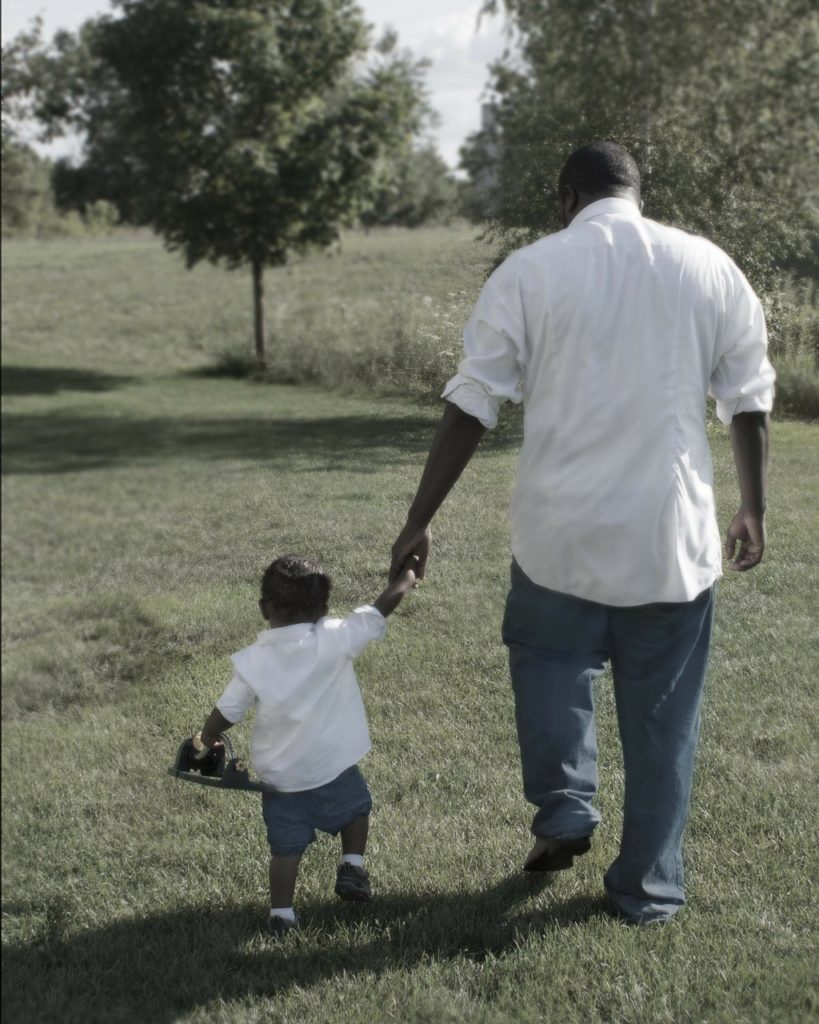What does it mean to be a good father ?
When thinking about this question, you may reflect on your experience growing up. Memories of your father or perhaps of another father that stood out to you in the community may come to mind. Perhaps this connection may not be so distant. In fact, you may quickly think of someone in your life now that others recognize as a great father.
Your mind may also wander to the various portrayals of fatherhood in the media. Does a character from your favorite show or book come to mind?
When you think of a model father, it can be hard not to find yourself comparing your parenting methods to theirs. But, is this the best way to evaluate your performance as a dad? How do your parenting skills stack up?
Fun Fact about “Parenting”
Parenting seems to be a topic that various experts have tried to research, figure out and coach the public on throughout history . However, it is interesting to learn that this is a much more recent topic of interest. In fact, learning to become a better parent wasn’t really focused on in mainstream media prior to the 1970s (See developmental psychologist Yuko Munakata’s Ted Talk https://www.ted.com/talks/yuko_munakata_why_most_parenting_advice_is_wrong ). Considering the level of focus and effort parents put into raising their children today, it seems hard to believe that this is the case.
Modern parents feel much more responsible for their children’s actions, success and overall development. Naturally, more interest (some may say pressure) with understanding this topic has been voiced. After all, no one wants to be seen as a “bad” parent. Even with that being said, there still isn’t a single book or course one can take that will lead to success for every parent.
This leads experts to believe that the experience of being a parent is unique in many ways. What is right for one family may not be right for another. This can make comparing yourself to other parents a less reliable way to grade your performance .
As a father, you may have considered a role model for reference ( which can be helpful) but a step by step comparison will only lead to frustration and confusion.

So what might be helpful to consider?
After reviewing several articles, videos, talks, and reflecting on what others have shared about their parents, I have compiled a short list of qualities that good fathers have been known to demonstrate. This list is in no way the end-all-be-all guide to being successful as a dad but simply something to consider during your parenting journey.
A good dad:
Recognizes Differences and the Unique
I often hear that we see much of ourselves in our children. This can really be a mix of traits that we like and dislike about who we are. There will also be other qualities that are unique to the child that you may have trouble relating to. You may question-“Where the heck did they get that from?” It’s a quick reminder that people are all so different from each other.
With that being said, it is important to remember that your children are different from you and from each other. What worked well for you or for another one of your children will not necessarily be the best approach for each child or situation. It is important to recognize these differences and provide each of your children with what they need. Know their personality, interests, strengths, sensitivities and limits.
Finds their Inner Teacher
You want to teach your children lessons that will help them become successful. This should be a decent sized list of events that they will need to know in the future. However, it is important to also provide guidance on smaller/more immediate issues. When teaching, it is worth noting that some of the best learned lessons happen in the moment. This includes guidance and correction as needed. If you see your child struggle or conduct themselves inappropriately, take time to assist them through it vs. talking to them about it later on. In addition, be sure to model appropriate actions as you are being watched by your children even when you are not aware of it! Be sure to demonstrate lessons that will contribute to your child’s overall wellbeing and understanding of the world. Take time to go over the importance of eating well, exercising, managing finances, treating others with respect and the value of hard work.
Demonstrates Respect for the Other Parent of their Child
If you have a partner to parent with, make sure you treat that individual with respect and gratitude. Parenting is a challenging job and becomes more challenging doing it alone. So this person matters, a lot. It is important to understand and continuously demonstrate that to this person. Modeling this behavior is not only important for your relationship with this person but is also important for your child to see (and learn). It also will make co-parenting much more effective when you are able to respect each other.
Learns to Relax, Laugh and Play
Your children understand the value in laughing and playing. This is a lesson we must remember at times so that we can enjoy life! Take time to relax and be entertained alone and as a family.
Gets Involved
It helps to know what is happening in your child’s life so they don’t start to feel like a stranger. This will determine how well your children know you. If there are opportunities to volunteer, chaperone, coach, or lead events for your child – consider taking them. It shows you have interest in what they are into and what they do. You also can have them get involved in things you do so that everyone feels more connected. When is the next bring your child to work day or sporting event?
Bonus: Considers Eliminating Distractions
This is a practical tip to incorporate with the rest of these qualities. Showing up to events, having dinner together, and respecting your partner are all difficult to do if your mind is elsewhere. To avoid falling into any rabbit hole online, getting wrapped up in work, or distracted by TV, it is best to set tech aside when attempting to spend quality time together as a family. This will also be a lesson to your children as you are modeling what attention, good listening, and respect looks like.

Wrap up
As I previously mentioned, experts have written many guides and have published tons of research on this topic but there still isn’t one recognized universal manual for every parent to use. That is because there isn’t one correct approach!
Even if you do or do not identify with what is on this list, it is best to consider your family’s needs and understand how you can be helpful to your children. This may mean doing more or less of a particular action based on outcomes. You will know how things go by measuring your child’s reaction and response. This will give you a hint if there is any potential in using a certain method again. Just remember to be patient and flexible as some of these methods will work well on some days but not so well on others!
Ultimately, you want to find what is healthy and what works most of the time for your family. The best approach is to be consistent in your parenting while providing clear boundaries of what is and isn’t acceptable.
